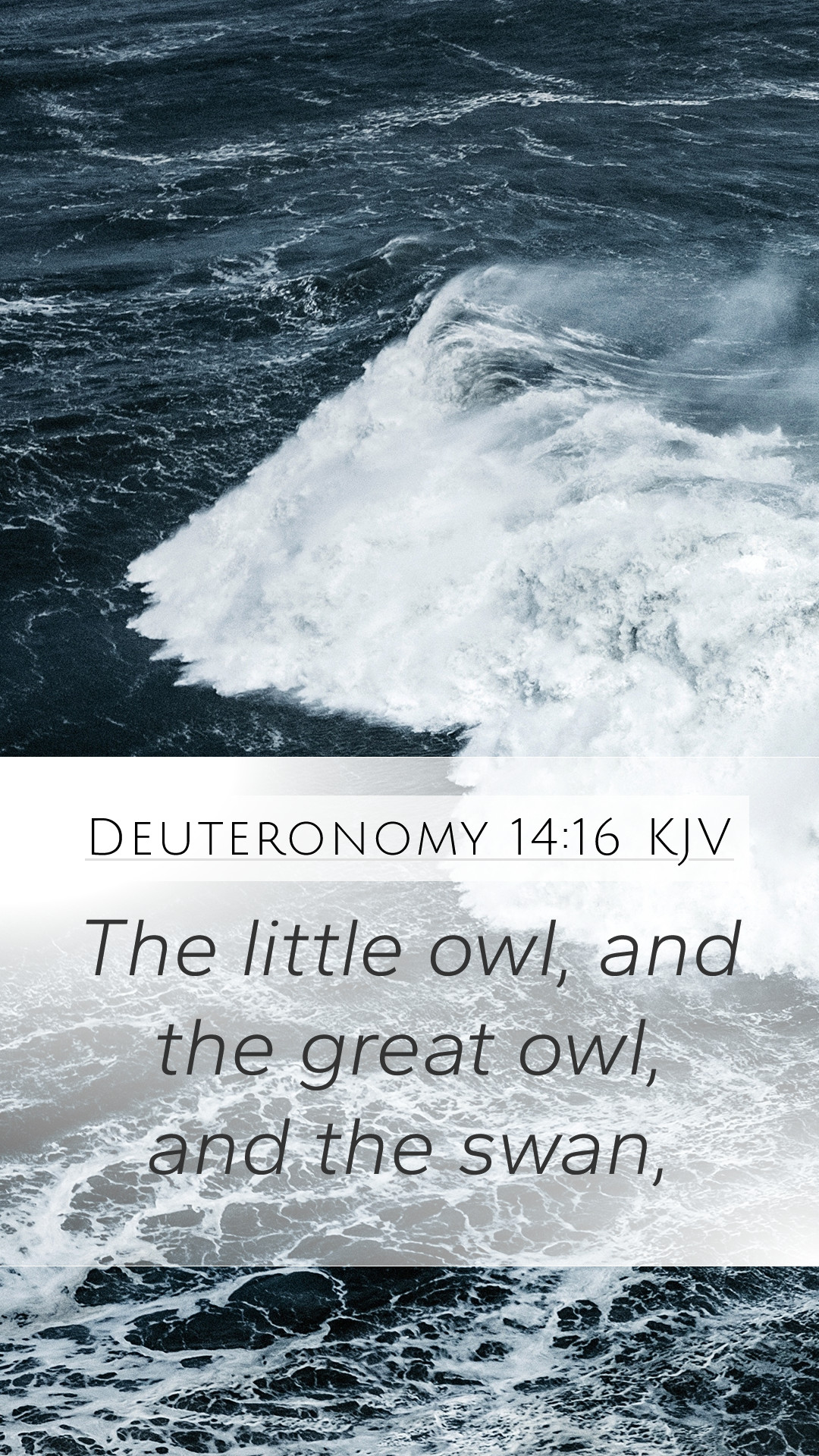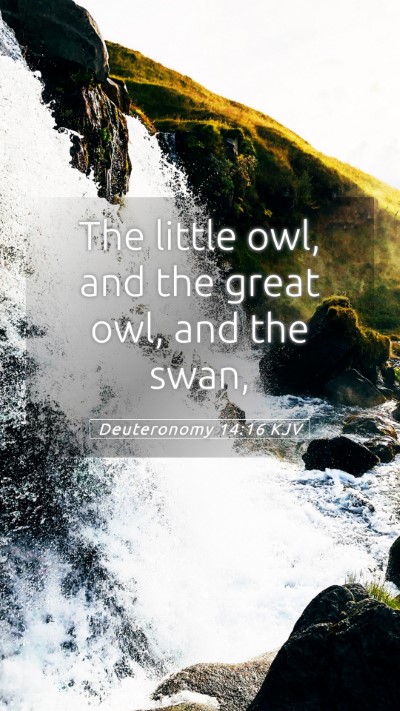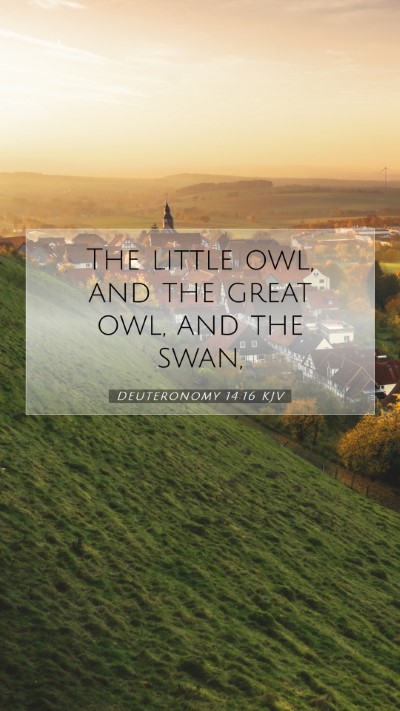Understanding Deuteronomy 14:16
Bible Verse: "The little owl, and the great owl, and the swan." (Deuteronomy 14:16)
In the context of Bible verse meanings and Bible verse interpretations, this verse is part of a list of unclean birds mentioned in the Mosaic Law, which the Israelites were instructed to avoid as part of their dietary restrictions.
Insights from Public Domain Commentaries
Matthew Henry's Commentary
Matthew Henry emphasizes the significance of the Israelite dietary laws as a means of setting God's people apart from other nations. He suggests that these restrictions were not merely for health reasons but were a divine ordinance reflecting the holiness of God. The bird species mentioned represent creatures that are primarily nocturnal, which may symbolize uncleanliness and associated spiritual implications in the cultural context of ancient Israel.
Albert Barnes' Notes on the Bible
Albert Barnes provides a detailed analysis of the various birds considered unclean, highlighting their characteristics and the reasons for their exclusion from the Israelites' diet. He remarks that these regulations serve to instill a sense of discipline and obedience among the people of Israel, reaffirming their covenant with God. Barnes also points out that the categorization of certain animals is intended to reinforce the need for purity and holiness in the lives of believers.
Adam Clarke's Commentary
Adam Clarke discusses the specific birds listed in this verse, providing historical and linguistic context for each. He notes that the rendition of these names may vary in translation, but the underlying message remains focused on maintaining ceremonial cleanliness. Clarke suggests that this verse also points to a greater spiritual truth about separation from evil and the cleansing power of God in the lives of believers.
Summary of Key Themes
- Holiness and Separation: The verse reinforces the importance of setting boundaries that reflect God's holiness.
- Covenantal Obedience: The dietary laws serve as a tangible way for the Israelites to live in accordance with their covenant with God.
- Spiritual Symbolism: The specified birds represent a broader theme of cleanliness, both physically and spiritually, in the Biblical narrative.
- Dietary Restrictions: These restrictions were intended to guide the Israelites in maintaining a unique identity among the nations.
Application of Deuteronomy 14:16
This passage provides significant Bible study insights, particularly in understanding how ancient Israelite laws can be applied to a modern Christian context. While New Testament believers are not bound to the dietary laws, the principles of separation from evil and pursuing holiness remain relevant.
Applying Biblical Wisdom
In pursuing a deeper Bible verse understanding, it is essential to consider how these laws encourage contemporary believers to reflect on their choices and lifestyles. Questions for personal reflection could include:
- How do we define purity in our daily lives?
- What boundaries do we establish to maintain a God-honoring lifestyle?
- In what ways can we embody holiness as a reflection of our relationship with God?
Cross References
- Leviticus 11:13-19 - Further dietary laws regarding unclean animals.
- Isaiah 66:17 - Warnings against committing abominations, including the eating of unclean animals.
- 1 Peter 1:16 - The call for holiness, "Be holy because I am holy".
- Acts 10:14 - Peter's vision that challenges the Old Testament dietary laws.
Further Study Recommendations
For those interested in conducting Bible study lessons on this and related passages, consider utilizing Bible study resources and Bible study tools that emphasize the importance of historical context and theological implications of Scripture. Engaging in Bible study groups can also provide interactive discussion opportunities that enrich understanding.


